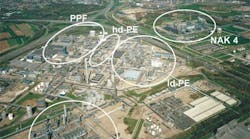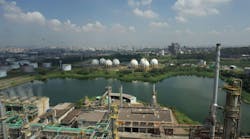It should be no surprise that Venezuelan Pres. Hugo Chavez, a former army paratrooper, has turned to the army to help him manage state oil company Petroleos de Venezuela SA.
In his election campaign, Chavez had characterized PDVSA as an unresponsive giant in the Venezuelan economy, a state within a state.
Following a 4-day strike by oil workers, Chavez recently named Gen. Guaicaipuro Lameda Montero president of PDVSA.
Hector Ciavaldini, the former president, claimed he was not dismissed because of his handling of the oil workers' strike but that he quit because he was exhausted from 14 months on the job.
Earlier, Chavez had named Gen. Oswaldo Contreras Maza head of PDVSA's US refining and market subsidiary Citgo Petroleum Corp. Those appointments have prompted complaints about the potential militarization of the Venezuelan oil industry.
Chavez has vowed to put PDVSA's operations under a "magnifying glass" to bring it under government control and eradicate graft.
Directions
Lameda has fairly strong credentials but no oil or business experience.
He is an electrical engineer with a postgraduate degree in economic planning. He formerly headed Venezuela's budget office.
His arrival at PDVSA comes at a crucial juncture for Venezuela, which is the third largest producer in the Organization of Petroleum Exporting Countries.
The company is producing as much oil as possible while it is implementing a restructuring plan that emphasizes cost-cutting.
Lameda's appointment continues, rather than sets, a precedent. PDVSA's first president was an army general, Rafael Alonzo Ravard, who performed creditably after Venezuela nationalized the oil industry in 1975.
And over the years, more often than not, PDVSA's presidents have been managers without oil industry experience.
In a recent talk, Chavez stressed, "There is no change in strategy. There is no change of team. There is only a new president."
Leadership
Chavez has not only tried to improve Venezuela's standing within OPEC but also to make the nation a regional economic power.
Venezuela recently signed 11 bilateral accords with Central American and Caribbean nations that will provide them with oil at subsidized rates.
The Caracas Energy Accord doubled the 80,000 b/d that Venezuela sells to the region under the San Jose Pact, a Mexican-Venezuela deal offering oil under preferential terms.
The 11 nations are: Barbados, Belize, Costa Rica, the Dominican Republic, Guatemala, Haiti, Honduras, Jamaica, Nicaragua, Panama, and El Salvador.
Each is eligible to finance some oil purchases at 2% interest over 15 years and pay with agricultural products.
Cuba signed a similar deal, for 53,000 b/d, when Pres. Fidel Castro visited Caracas last week.
Chavez, a leftist nationalist, holds a fascination for Castro. Chavez launched a controversy when he invited Castro to address the National Assembly, which spurred the walkout of many legislators.
Venezuela's closer ties with Cuba could cause problems with its foremost trading partner, the US.

